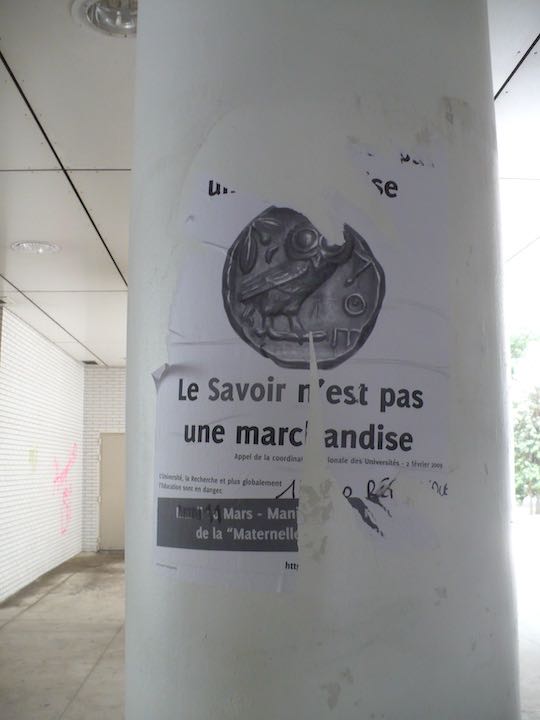The problem of self-care brings us to the conclusion of the inquiry. Yet having gotten so far into this project, I have to say that I find it hard to end it. Ambivalence binds us to our objects, as does the fantasy of finding something unambivalent there. And in this project, the Other is ambivalent too. But at times ambivalence can be an impasse. Especially when it binds us to broken and violent institutions. It is no accident that some of the most utopian research today, like Stefano Harney and Fred Moten’s Black radicalism, is written under the banner of fugitivity. In the preface to Harney and Moten’s The Undercommons, Jack Halberstam nicely formulates this sense of blockage: “If we do not seek to fix what has been broken, then what?” (Harney and Moten 2013:5).

It is a question as urgent as it is all but unanswerable. And it raises a further question about narration. Halberstam speaks on behalf of a we. Yet what does “we” mean in a shattered world? Who are we, the counterpublic who has traversed this inquiry into a disappointed utopia? Perhaps we is what is broken; can it be fixed? Or is we just always a failure, a performative misfire or an act of symbolic violence? In any event, to inquire into the politics of we is to raise a question about political belonging in our space of inquiry. And in this space, I fear there are no unimpeachable narrators. Consider Halberstam: long admired as a queer theorist, he has recently argued, with Tavia Nyong’o, that “it is time to rewild theory” (2018:454). And yet he has also become notorious for defending a fellow critical theorist, Avital Ronell, who by many accounts has abused her graduate students for decades.[1] What kind of claim can Halberstam now make on utopian belonging?
Halberstam may have become a figure of a deeply disappointing queer utopianism, but in spite of the all-or-nothing approach that sometimes leads us to a left moralism, I would not necessarily repudiate Halberstam, just because he has started acting, paradoxically, like a queer patriarch of sorts. To repudiate would be to invoke the melodramas of aggressive out-radicalization whose limits we have been exploring. We might say instead that Halberstams are symptoms of a world where there are few safe distinctions between (good) self and (bad) Other, between critical righteousness and epic failure. We could thus end this book with the thought that we are rarely here just as ourselves. We are all multiple. We are all in the Other, indeed in many Others, in the precarious Other, in the patriarchal Other. That which we reject usually remains part of us.
This has been a book about how the patriarchal Other is hard to avoid, even in the lineage of “us.” It is about how erstwhile anticapitalists try to make a living in a globalized, and notably a postcolonial market. It is about how utopian values get advanced by a fraught dance of appropriation and forfeit. It is about how thoughtful intellectuals can be integrated uneasily into global systems of accumulation. If there is a “we” who emerges from the course of this inquiry, it is no longer an unproblematic term, but an ongoing problem space. If we still has any meaning, this can only emerge from confronting contemporary spaces of precarious experience, with all their inner shattering, vertigo and cruel optimism. It can only emerge from exploring the genealogies that have brought us to the present.
In any event, this inquiry leaves me with three concluding thoughts about how we might still work with theory in a precarious world.
-
See for example Andrea Long Chu, “I worked with Avitall Ronnell. I believe her accuser,” The Chronicle of Higher Education, August 30, 2018. https://www.chronicle.com/article/i-worked-with-avital-ronell-i-believe-her-accuser/. ↩